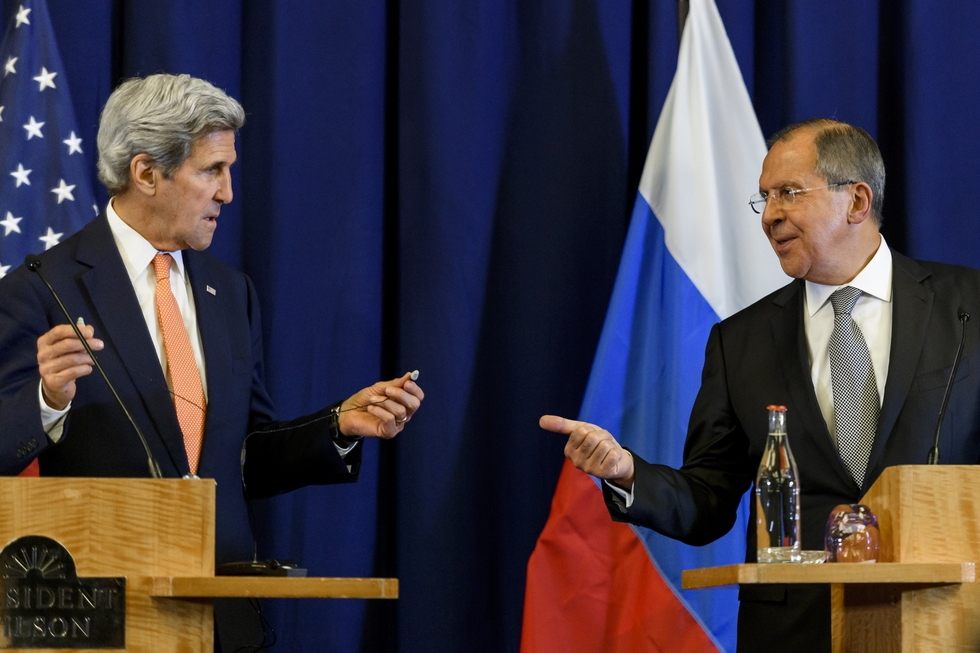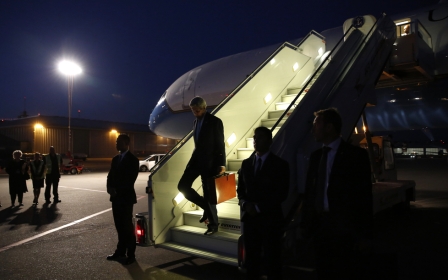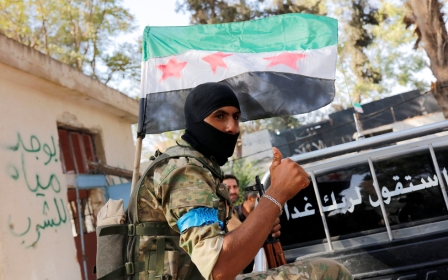US and Russia announce Syria ceasefire and possible peace plan

The United States and Russia on Friday agreed on a plan to impose a ceasefire in the Syrian civil war and lay the foundation of a peace process, US Secretary of State John Kerry said.
Standing by Russia's Foreign Minister Sergei Lavrov after a day of marathon talks in Geneva, Kerry said he believed the plan would lead to talks to "stop the conflict".
"Today we are announcing an arrangement that we think has the capability of sticking, but it's dependent on people's choices," Kerry said.
"Going after Nusra is not a concession to anybody, it is profoundly in the interest of the United States to target al-Qaeda," CNN quoted Kerry as saying, adding that the group was planning attacks both in and outside Syria, including attacks directed at the US.
The final hours of the talks dragged out as Kerry contacted US President Barack Obama's office to get approval for the plan, but the top diplomat said both governments stand behind it.
"The United States is going the extra mile here because we believe that Russia and my colleague have the capability to press the Assad regime to stop this conflict and come to the table and make peace," Kerry said.
The ceasefire should see Syrian and allied forces pull back from positions on key supply routes around Aleppo, allowing desperately needed humanitarian access to the communities besieged in the five-year-old conflict.
The UN's Syria envoy Staffan de Mistura joined Kerry and Lavrov after their talks and welcomed the deal, which he said he will to take to UN Secretary General Ban Ki-moon and to seek international support for its implementation.
"The United Nations hopes that the political will that led to this understanding is sustained," Mistura said in a statement.
Washington and Moscow are key backers of opposing sides in the Syrian conflict - but they are also joint leaders of the international effort to end the war, and declared a UN-backed ceasefire as far back as February.
But that truce collapsed and Russia has maintained strong air support for Assad's forces, while Washington has encouraged the opposition rebels.
Kerry and Lavrov have continued to meet, most recently on Sunday and Monday on the sidelines of the G-20 in China, where Russian President Vladimir Putin also talked to Obama.
But fighting has continued, with Syrian government forces encircling and attempting to choke rebel-held areas of Aleppo, and rebels launching a wide-scale offensive in the western province of Hama.
The five-year conflict has left more than 400,000 people dead and forced millions to flee, becoming the key contributor to migrant flows into Europe.
This article is available in French on Middle East Eye French edition.
New MEE newsletter: Jerusalem Dispatch
Sign up to get the latest insights and analysis on Israel-Palestine, alongside Turkey Unpacked and other MEE newsletters
Middle East Eye delivers independent and unrivalled coverage and analysis of the Middle East, North Africa and beyond. To learn more about republishing this content and the associated fees, please fill out this form. More about MEE can be found here.




